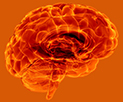
A friend of ours woke up one morning, poured himself a cup of coffee, then headed to the bathroom. To his horror, the left half of his face had collapsed and got worse as he watched. Gradually, his speech slurred and his left limbs weakened.
He was having a stroke. Fortunately, he was rushed to the hospital in time for a full recovery. Considering he was only 32, the stroke could have been devastating.
For stroke victims to increase their chances of recovery, they need to be treated within three hours of the first symptoms. But for that to happen, a person must get to a hospital within the first hour to give doctors enough time to evaluate their condition and treat them. Being able to stretch that window could buy a lot more people time.
A compound called dalfampridine (dal-FAM-pri-DEEN), also known as AMPYRA (uhm-PIE-rah) could stretch that window by weeks. In rats that had suffered a stroke at least four weeks prior, the drug was able to improve motor function in all four limbs. Rats given higher doses showed even greater improvement.
A clinical trial is planned with a small number of human stroke patients who had a stroke at least six months earlier. By then patients' recoveries have usually plateaued, making any improvement during the study the result of taking AMPYRA. The drug is already approved for helping multiple sclerosis patients walk.
If it can do the same for stroke victims, it'll be the first effective treatment other than physical therapy to restore motor function long after a devastating stroke.
The benefits of developing stroke therapies are obvious. Over six million Americans have had a stroke, and half a million new cases occur each year. Eighty percent of the cases are ischemic stroke, which could benefit from this new therapy.
More Information
✔ Pill Could Reverse Effects of a Stroke Long After It Hits
A report on the compound dalfampridine, which may have the potential to help stroke patients who miss the current short window for most effective treatment and are affected by reduced mobility long after their stroke. The drug is thought to help damaged nerves transmit electrical signals in the brain.
✔ Stroke
Information on strokes, including causes, symptoms, risk factors and more, from the highly reputable Mayo Clinic.
✔ Know Stroke. Know the Signs. Act in Time.
Another site similar to the Mayo Clinic one above, this one from the National Institutes of Health. Everyone should read this information to become familiar with what a stroke is, its signs and symptoms, as well as what to do should you be there when someone has one.
✔ Acorda Therapeutics Presents Preclinical Data Showing Dalfampridine Improves Motor Function in Chronic Stroke
A report on the treatment with dalfampridine that improved motor function in a preclinical model of stroke, with treatment initiated at least four weeks following the ischemic event.